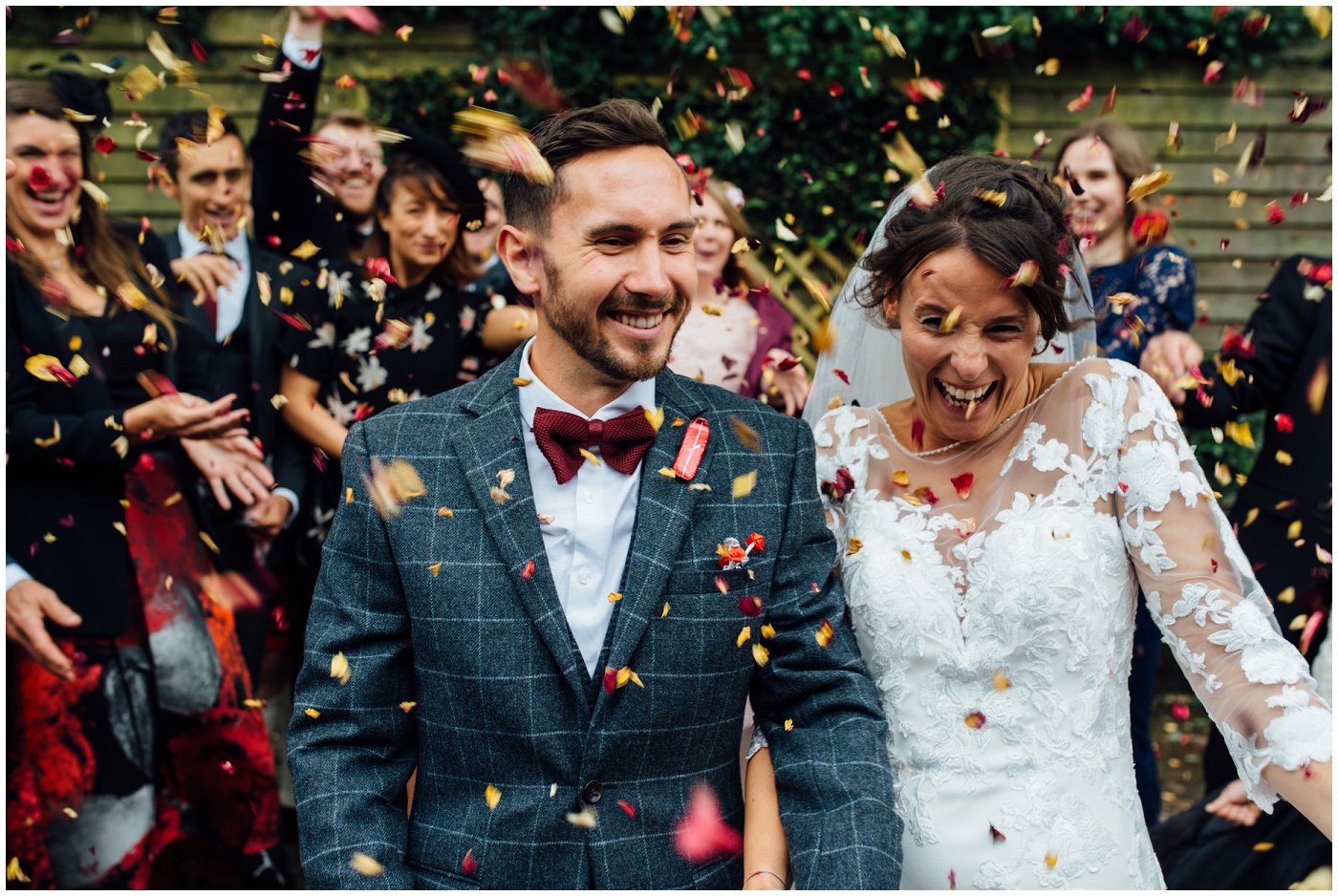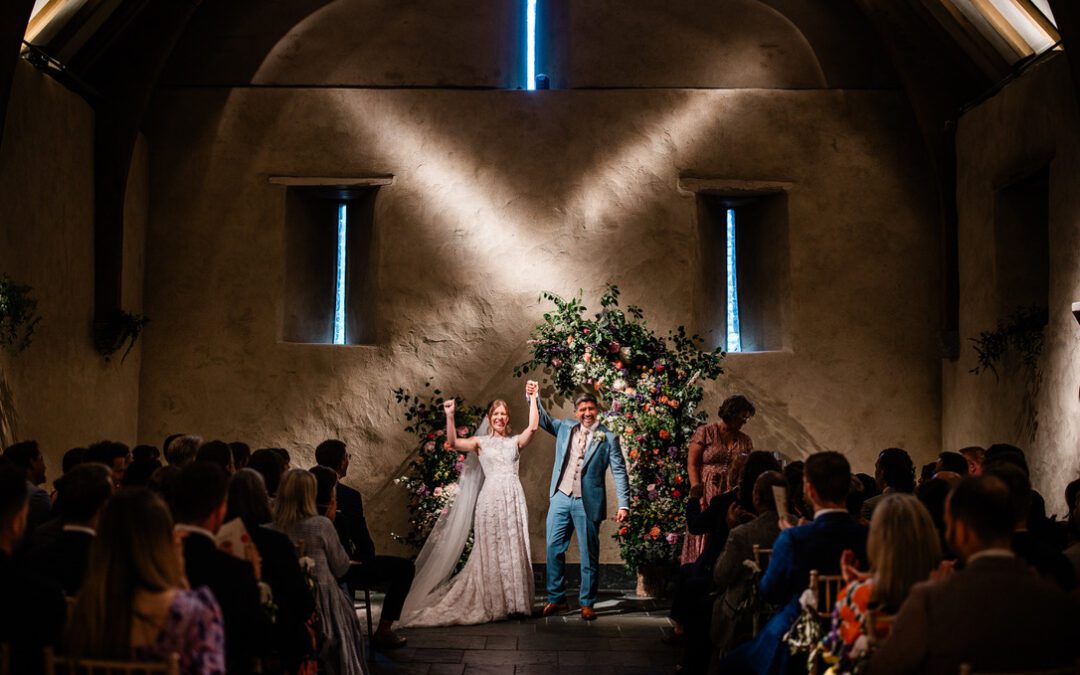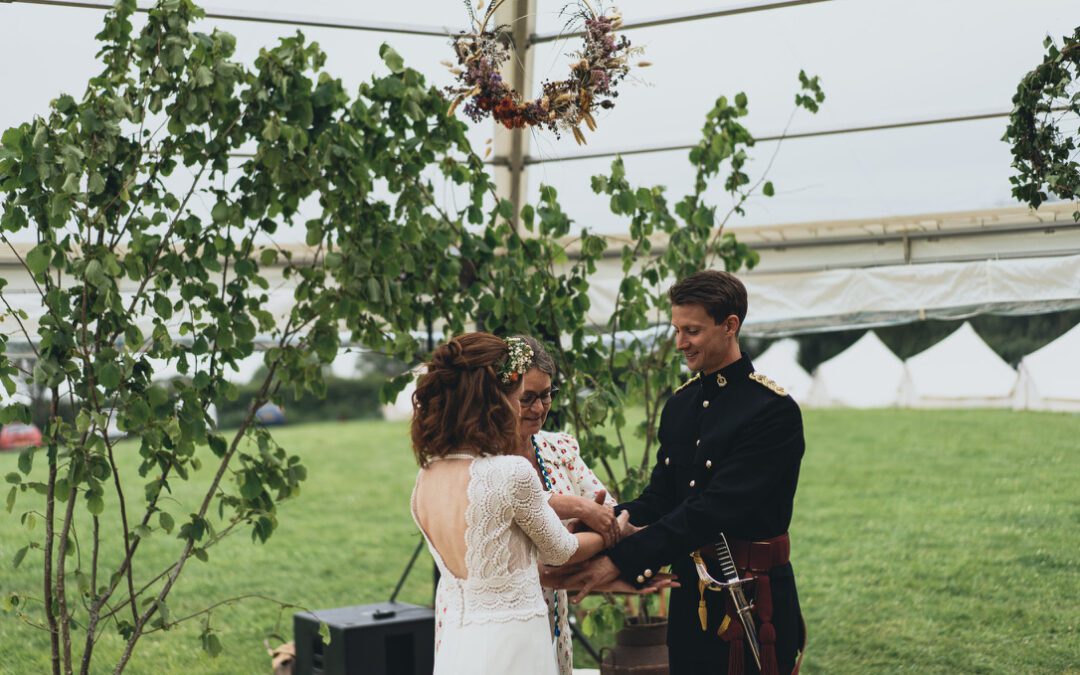Table of Contents
Photo credit: Liz Baker Photography
Prioritise Your Wedding Ceremony
With all the planning involved in a wedding, it is so easy to lose sight of the reason for it. It is easy to get distracted by all the trappings. But if there is no ceremony, there is no need for all the trappings. No need for a party. Therefore, it’s vitally important that you prioritise your wedding ceremony.
A wedding ceremony is a rite of passage, a life event, and should reflect you, your relationship, your love for each other, and your community. So don’t forget to prioritise your wedding ceremony, and here’s how you can do just that:
Wanting the most from your ceremony
All couples want a wonderful party, large or small, at their wedding. However, there is no doubt in my mind that couples who use a wedding celebrant have decided to prioritise their wedding ceremony. They identify that currently, they are having to compromise on many levels to have any individuality in their ceremony. And they don’t like it.
Furthermore, it does not sit comfortably with them to have no control over the content of their wedding ceremony or who officiates it.
Making a personalised commitment and promises to one another with your friends and family as witnesses is a great way to prioritise your wedding ceremony, not the legalisation of your marriage.
If you want to own the moment, rather than having to settle for prescriptive text, then a celebrant wedding is the way forward for you. Unlike the script that a church or state (registrar) wedding offers, you can add personal touches and creativity to your day.
Therefore, for a deeply meaningful, personal, and heartfelt ceremony filled with humour and authenticity, with freedom to include any content you want, prioritise your wedding ceremony, and talk to an independent wedding celebrant.

Photo Credit: Venetia Norrington Photography
Lack of knowledge about the choices for a wedding ceremony
It’s been 5 years since I became a wedding celebrant. To be honest, prior to that, I didn’t know much about wedding ceremonies and had never heard of a wedding celebrant.
My knowledge was limited to the process my husband and I went through when we got married in church 30 years ago. Indeed, even when it came to our own wedding, and like so many others then and now, we asked very few questions and just took the lead from the vicar. We just did as we were directed.
However, things have changed, and this new generation is not such an accepting society. You can prioritise your wedding ceremony. Unfortunately, I have also learned not to assume that everyone knows the facts about weddings and the choices on offer regarding your special day.
So it has become a mission of mine to inform or, at the risk of sounding patronising, educate couples, my peers, wedding venues and planners, in fact, anyone who will listen, that there are beneficial alternatives to what the church and state can offer.
Both myself and my fellow independent wedding celebrants want to shout it from the rooftops, ‘Prioritise your wedding ceremony!’, make it personal, make it about you. Trust me, this lack of knowledge can be very frustrating. Choice is key, and all couples deserve that choice.
Prioritise Your Wedding Ceremony and Ask Questions
For many couples, although they know a ceremony is required, they haven’t really thought much further than that. They may follow what their wedding venue recommends or, indeed, what a friend or family member suggests. It seems that only couples who really want a ceremony that is a true reflection of themselves are those who delve deeper and research what options are out there for them.
Furthermore, as I have inferred above, there still remains a sense of acceptance of how the process of marriage is managed by the church or state. Couples do as generations or peers have done before without question, input, or opinion.
If however, you, a family member, or friend has attended a celebrant-led wedding ceremony, all would recommend that you should at the very least consider this option. Prioritise your wedding ceremony, and in so doing, you will find that it is possible for your ceremony to be individual and authentic and not just a template of every other.
It is therefore, so important for you to research and ask questions about all the options you have. You can then make an informed decision on what’s right for you.

Photo credit: Simon Hawkins Weddings
Some background ON wedding ceremonies and registered buildings
Wedding ceremonies have literally been ‘wedded to buildings’ since 1753, when it was made compulsory for all marriages to take place in the parish church, with the exception of Quakers and Jews.
The Marriage Act of 1949 changed things a bit. A distinction was made between those marriages solemnised by the church of England and those who, for whatever reason, did not want to follow that path. Those couples had to undergo a separate civil ceremony in a registered building to be married in the eyes of the law. Hail the advent of the registry office and then, more recently, registered wedding venues.
How crazy is this, that a building is more important than the act and detail of uniting two people in marriage? And what’s even crazier is that in the twenty-first century, it is still the law!
What other restrictions are there within a wedding ceremony
We have now established that to be married in the eyes of the law in England and Wales, it needs to be held in a registered building, be that be a church or a venue.
There are still more restrictions. This is regarding content and design in both and applies to both church and civil ceremonies.
It’s got better definitely, with a little bit more flexibility and some bending of the rules, but still if you want to be really in control of your ceremony and drive what happens within it, at the moment, technically, you are still not allowed to and you are at the mercy of the registration services or clergy and the archaic regulations.
This really should not be the case. You should be allowed to prioritise your wedding ceremony your way. It really is the most important part of your wedding day. It’s a rite of passage. A life event. In this modern world, you should not be dictated to by some archaic law.
If you could prioritise your wedding ceremony your way, what would you change? How it is done, where it is done? Who says what, what music you can use, what readings you want to include, what you can say to one another and anything else you want to include. Consider symbolic rituals, religious and/or non-religious traditions all reflecting your cultural heritage.
You name it; you should be able to include it.
It’s time to take control of your wedding ceremony
Well, with a celebrant-led wedding all of this is possible. You can prioritise your wedding ceremony to make it the focus of your day. Your wedding ceremony should be about you and your relationship. You can also make it about your families, your friends and your lives.
You get to choose where you want to have your ceremony and who officiates. It’s time to take control and own your wedding ceremony.

Photo credit: Little Phat Dog Photographic
Wind of change
For the time being, in England and Wales, you still, as decreed by the law passed in 1939, have to undertake a separate civil ceremony.
This is not the end of the world. Forward-thinking modern couples can see past the inconvenience and put to one side the need to legalise their marriage at the same time as their ceremony. They attend the registrar’s office on another day and get the legalities done then.
But just imagine if the law were changed and getting married in England and Wales could be like in Australia or the States. You could legally marry at home in your garden, on the beach, I could go on, but basically, you could have your wedding ceremony and be legally married anywhere and by the person of your choice. This can happen if the law is changed so that the officiant is licensed, not the building.
The Law Commission is currently reviewing the marriage laws. Their recommendations are due any day. To quote Russell Sandberg “This is a once-in-a-generation opportunity to bring about marriage law reform.”
The Give Couples Choice Movement is an organisation run by independent wedding celebrants who believe there is a real need for reform to the current outdated marriage laws to ensure that couples have this choice, so you can prioritise your wedding ceremony your way.
If anything of what I have written resonates with you, and choice matters to you, please contact the Give Couples Choice Movement (link here) for more information and lend your support.
Will you Prioritise Your Wedding Ceremony?
So, I go back to my first question. What matters most to you? Is the ceremony the focus of your wedding day? Do you want to prioritise your wedding ceremony? I bet you cannot wait to say your vows and commit to one another in front of your family and friends. So ask yourself, why are you having a wedding, and where do your priorities lie?
Food for thought, hey? I’d love to hear what matters most to you about your wedding day.






